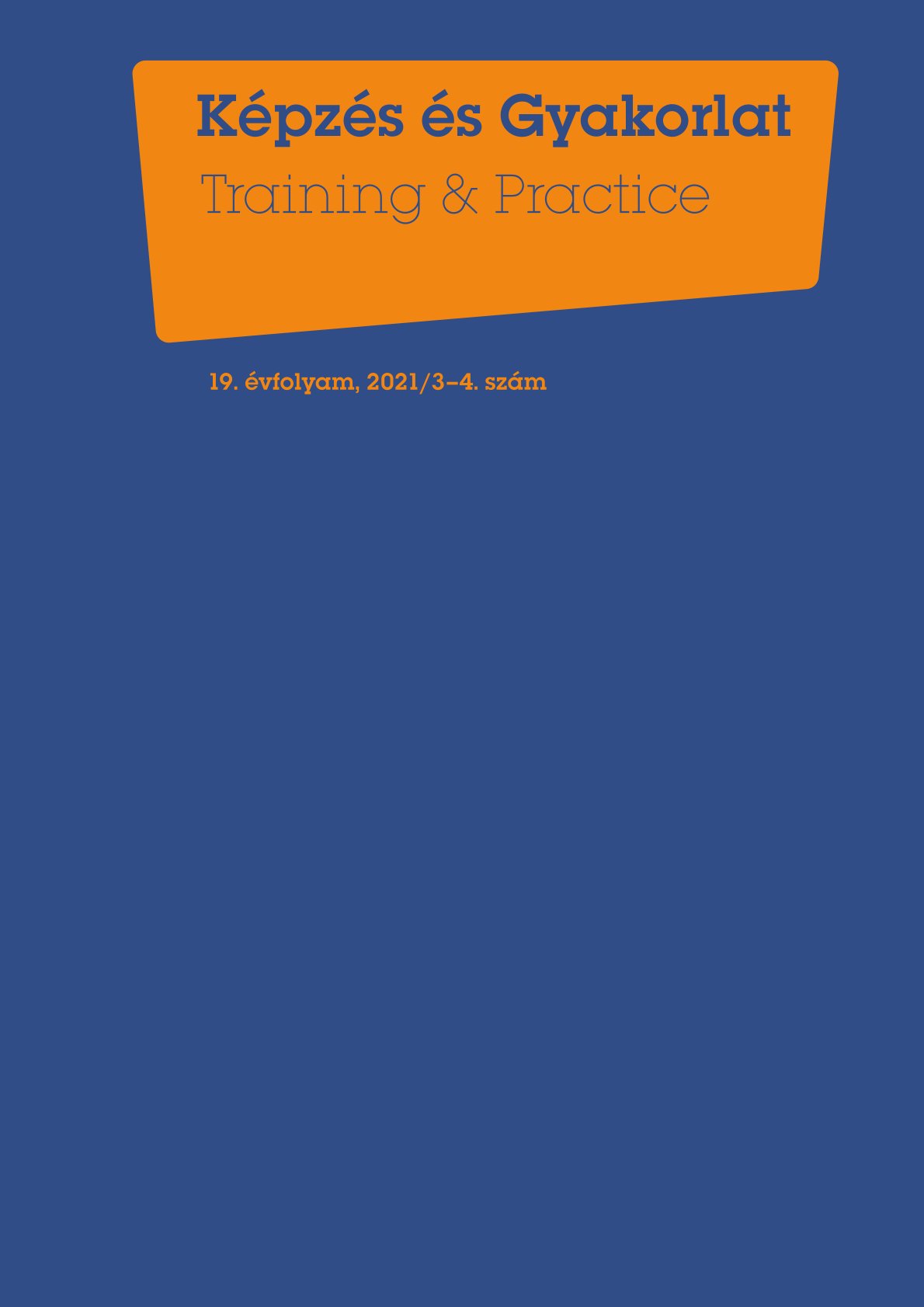The current parental role in the reflection of changes in family life
DOI:
https://doi.org/10.17165/TP.2021.3-4.5Absztrakt
The social changes, which happened in the second half of the 20th century and they have still been happening now, significantly influence the performance of the parental role. For this reason, it is natural that these changes in social conditions have an impact on the educational acting of parents. Family is part of a broader social context with many social connections and relationships. Thus, factors of the broader social environment at the micro-, meso-, exo-, and macro environment levels influence the parental role. In addition, different life and transactional experiences (developmental, situational) mo- dify the parental role and the relationship between family and environment. The article aims to clarify the determinants of the current family role, today`s form of relationships between parents and children, and the changing patterns of the mutual relationship between parents. The article also focuses on parents` tendency to have a more liberal attitude to their children. It points to parents over-protecti- veness and tendency to transfer the responsibility for education to school and educational institutions.
Hivatkozások
Beck, U. (2018). Riziková společnost. Praha: Slon.
Beck, U., Beck-Gernsheim, E. (2016). Távszerelem / Távszeretet. Szeged: Belvedere Meridionale.
Botterill, K. (2014). Family and Mobility in Second Modernity: Polish Migrant Narratives of Individualization and Family Life. Sociology, 48 (2), pp. 233–250. DOI: https://doi.org/10.1177/0038038512474728
Cseh-Szombathy, L. (1995). A családi értékek változása és ennek hatása a családi funkciók alakulásásra. In: Bakácsiné Gulyás, M. (Ed.), A nevelés társadalmi alapjai, (pp. 141-153). Szeged: JGYTF kiadó.
Guráň, P.- Filadelfiová, J.- Ritomský, A. (1997). Tradičné verzus moderné: zmeny a život súčasných rodín. Sociológia, 29 (1), pp. 5-20.
Jacyno, K. (2012). Kultura individualismu. Praha: Sociologické nakladatelství.
Jancsák, Cs. (2013). Ifjúsági korosztályok korszakváltásban. Budapest: Új Mandátum Könyvkiadó.
Kasáčová, B. a kol. (2017). Deti na prahu vzdelávania. Výskumné zistenia a pedagogické inšpirácie. Banská Bystrica: PF UMB.
Kobayashi, M. K. et al. (2017). Constructing a sense of commitment in ‘Living Apart Together’ (LAT) relationships: Interpretive agency and individualization. Current Sociology, 65(7), pp. 991–1009. DOI: https://doi.org/10.1177/0011392116653237
Kraus, B. (2017). Vliv životního stylu současných rodin na život dětí. In: Bakošová, Z. (Ed.), Rodina, tolerancia inakosti a kvalita života detí a mládeže, (pp. 7-17). Bratislava: UK.
Krys, K. et al. (2021). Personal Life Satisfaction as a Measure of Societal Happiness is an Individualistic Presumption: Evidence from Fifty Countries. Journal of Happiness Studies, 22, pp. 2197–2214. DOI: https://doi.org/10.1007/s10902-020-00311-y
Kurincová, V., Turzák, T. (2017). Výchova k rodičovstvu: vybrané podnety zo zahraničia pre teóriu, prax a výskum v pedagogike rodiny. In: Bakošová, Z. (Ed.), Rodina, tolerancia inakosti a kvalita života detí a mládeže, (pp. 47-55). Bratislava: UK.
Lacinová, L., Škrdlíková, P. (2008). Dost dobří rodiče aneb drobné chyby ve výchově dovoleny. Praha: Portál.
Ondrejkovič, P., Majerčíková, J. (2006). Spoločenské zmeny a rodina. In: Ondrejkovič, P. et al., Rodina v novom miléniu, (pp. 29-43). Nitra: UKF.
Potočárová, M. (2008). Pedagogika rodiny. Teoretické východiská rodinnej výchovy. Bratislava: UK.
Sayer, C.L. et al. (2004). Educational differences in parents’ time with children: Cross-national variations. Journal of Marriage and Family, 66, pp. 1152–1169. DOI: https://doi.org/10.1111/j.0022-2445.2004.00084.x
Segrin, Ch. et al. (2012). The Association Between Overparenting, Parent-Child Communica- tion, and Entitlement and Adaptive Traits in Adult Children. Family Relations, april 2012, pp. 237-252. DOI: https://doi.org/10.1111/j.1741-3729.2011.00689.x
Vajda, Zs., Kósa, E. (2005). Neveléslélektan. Budapest: Osiris.
Vaskovics, L. (2014). Családszerkezeti átalakulások európai kitekintésben. Szociológiai szemle, 24 (1), pp. 5–39.
Letöltések
Megjelent
Folyóirat szám
Rovat
License
Copyright (c) 2021 Eleonóra Mendelová, Zelená Hana

This work is licensed under a Creative Commons Attribution-NonCommercial-NoDerivatives 4.0 International License.








